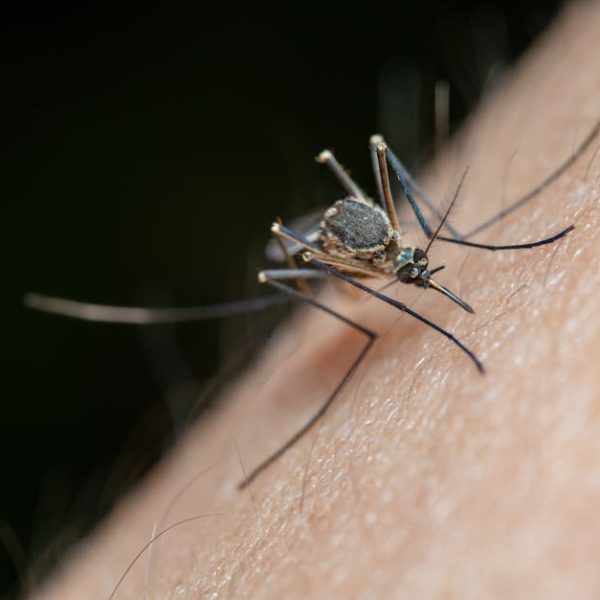Could gardening get any more rewarding? Imagine soaking in the lush greenery around you while doing some good for the environment! It envelops a considerable holistic value, imparting not just aesthetic charm but health benefits, environmental conservation, and emotional satisfaction.
Composting is a significant element in gardening. It involves the decomposition of organic matter to enhance soil fertility, providing an eco-friendly alternative to chemical fertilizers. Proper composting brings forth a well-balanced mix of organic materials or “browns” which are carbon-rich, like leaves or peat, and “greens,” nitrogen-rich materials like fresh grass clippings. ‘Pro-Tip’: Ensure your compost heap has an excellent brown-green balance. Here’s where pine needles make a quiet, but essential, entry.
Pine needles are a brown carbon-rich material and play a vital role in your compost pile. They carry a high carbon content, a valuable resource in providing energy for microorganisms while building the soil’s capacity to hold water and nutrients. The rule of thumb here is to blend these carbon-rich pine needles with greens for a well-mixed compost, encapsulating the ‘Best Practice’: Introduce pine needles to your compost in a balanced ratio with nitrogen-rich materials.
An often-debated topic around pine needles’ role in composting entails its impact on the compost heap’s pH. Pine needles are mildly acidic and could slightly lower your compost’s pH – but hold on! The fallacy here is the fear of creating overly acidic compost with abundant pine needles. Contrarily, the change is marginal and often beneficial, aiding in balancing the pH in otherwise alkaline soils.
Benefits of Adding Pine Needles to Your Compost
Pine needles bring with them an array of benefits that enhance the overall quality of your compost. One such advantage speaks volumes of their physical structure – their slender, elongated shape and rigidity provide natural aeration channels within the compost pile. This enhances oxygen circulation, accelerating the decomposition process, and promoting aerobic bacterial activity.
In addition, pine needles improve the moisture retention of compost piles. They create a layer that helps retain water while preventing excess moisture, a common issue in compost heaps. ‘Pro-Tip’: Use pine needles to regulate water management in your compost pile. Not too dry, not too wet – just right!
While all these benefits make pine needles a substantial addition to your compost, it’s crucial to weigh them against potential downsides. Overusing pine needles can lead to an imbalanced Carbon-to-Nitrogen ratio, a slower decaying process, and potential respiratory issues for the beneficial microbes in your compost. As with any ingredient in composting, moderation is key.
How to Properly Add Pine Needles to Your Compost
Incorporating pine needles into your compost is a straightforward process. Start by collecting fallen pine needles from your yard or sourced from a local tree care company. Mix these pine needles into your compost – about a quarter of your pile’s volume should be enough. Be sure to blend them well with the rest of the pile. ‘Checklist’: Collect, mix and keep track of proportions – the ideal approach to adding pine needles to your compost.
The exact proportion of pine needles in your compost depends on the other materials in your pile. If you have a lot of fresh green material, you can add more pine needles. If your pile is already quite brown, moderate the pine needles’ amount. ‘Best Practice’: Make sure your compost maintains a balanced Carbon-to-Nitrogen ratio, even with the addition of pine needles.
Debunking Myths: Pine Needles in Compost
There are a few misconceptions about using pine needles in compost, but fear not, we’re here to set the record straight.
The Overly Acidic Myth:
One of the most common myths about pine needles is that they make compost overly acidic, turning your soil into something akin to vinegar. The reality is that while pine needles are naturally acidic, composting them neutralizes most of this acidity. As they decompose, the microbes convert their acids into other compounds that are beneficial for the growth of plants making the change in pH levels marginal.
The Decomposition Dilemma:
Another misconception is that pine needles take forever to decompose and that they slow down the composting process. However, decomposition entirely depends on the Carbon-to-Nitrogen ratio and the presence of other materials in the compost. In fact, when mixed with high-nitrogen materials, the pine needles accelerate decomposition!
| Compost Materials | Estimated Decomposition Time |
|---|---|
| Pine Needles | 3 to 9 months |
| Straw | 2 to 6 months |
| Grass Clippings | 1 to 3 months |
The Killing Microbes Misconception:
Lastly, there’s a belief that pine needles kill beneficial microbes in the compost. Truth is, the pine needles do not eradicate the microbial activity but actually provide carbon, a source of energy, which fuels their growth. ‘Fact-Check’: Pine needles do not kill beneficial compost microbes but in fact, aids in their growth.
In essence, composting involves providing an environment where the right ingredients can decompose naturally over time, producing nutrient-rich soil. Adding pine needles to your compost is an effortless way to improve the health and productivity of your garden while recycling organic waste. It’s nature’s way of returning to the soil what we took from it – a circle of growth and sustainability worth embracing.
Key Takeaway:
- Composting involves a balance of carbon-rich ‘browns’ and nitrogen-rich ‘greens’, with pine needles serving as a beneficial carbon source.
- Pine needles, characterized by high carbon content and mild acidity, products a well-aerated, moist, and balanced compost.
- Their addition accelerates composting, improves water management, and doesn’t significantly affect pH or harm microbial activity.
- Pine needle usage in compost should be moderate, guided by a blend with other compost materials.
As we cultivate our green spaces, let’s continue exploring earth-friendly practices like composting that enrich our soil while protecting the environment. Remember, every component, including pine needles, contributes to the circle of growth and sustainability in our gardens. Keep up the good work, and let your garden thrive!
FAQs
Q: Can I add other types of needles to my compost, or should it only be pine needles?
A: You can add needles from different types of evergreen trees to your compost. Just remember, like pine needles, they may take a bit longer to decompose due to their carbon-rich content.
Q: Do I need to chop the pine needles before adding them to the compost heap?
A: You can add whole pine needles to your compost pile. However, chopping them into smaller pieces could speed up the decomposition process.
Q: Can I use pine needle compost for all kinds of plants or only specific types?
A: You can use pine needle compost for most plants. It might especially benefit those that prefer slightly acidic soil but won’t harm others due to its relatively neutral pH after composting.
Q: What do I do if I added too many pine needles to my compost heap?
A: If you’ve added too many pine needles and worry about an imbalanced Carbon-to-Nitrogen ratio, simply balance it out by adding more ‘green’ materials, such as vegetable scraps or fresh grass clippings.
Q: Given the acid content, are pine needles safe for worms in vermicomposting?
A: Yes, pine needles are safe for worms. Despite their acidic nature, the process of composting neutralizes most of this acidity, making it safe for worms and other valuable composting organisms.
Do feel free to share this insightful article about composting with pine needles with fellow green thumbs. Explore our other posts for more gardening tips and advice.






